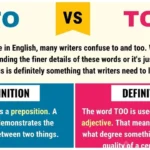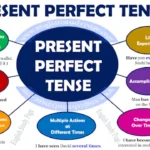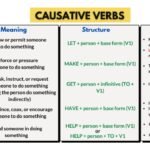Use Of is/am/are In Hindi: साधारणतः जिस हिंदी वाक्य के क्रिया के अंत में रहा है, रही है और रहे है रहता है उस वाक्य के लिए is/am/are का उपयोग किया जाता है, जो की present time को दर्शाता है और कार्य वर्तमान काल में हो रही है या जारी है उसके लिए is/am/are का युस किया जता है|
इसके कुछ रूल्स और स्ट्रक्चर का उपयोग करेक सेंटेंसेस को बनाने में आसानी होंगी जिसकी मदद से आप रहा है, रही है, रहे है जैसी सेंटेंसेस को अआसनी से ट्रांसलेट कर पाएंगे| इसका उपयोग Noun, Pronoun, Adjective, Adverb के रूप में भी किया जता है|
is/am/are +Noun/Pronoun/Adjective/Adverb
4 Rules And uses Of is/am/are
Rule 1 : To Show Present time (वर्तमान स्थिति को अर्शाने के लिए)
Examples :
- She is a doctor. (वह एक डॉक्टर है।)
- They are happy. (वे खुश हैं।)
- He is running fast. (वह तेज़ी से दौड़ रहा है।)
- The sky is blue. (आसमान नीला है।)
- The cat is sleeping peacefully. (बिल्ली शांति से सो रही है।)
Rule 2 : To Show Talent (किसी के गुण को दर्शाने के लिए)
Examples :
- She is an excellent singer. (वह एक उत्कृष्ट गायिका है।)
- He is very good at mathematics. (वह गणित में बहुत अच्छे हैं।)
- They are talented artists. (वे प्रतिभाशाली कलाकार हैं।)
- The chef is skilled at cooking. (शेफ खाना पकाने में कुशल है।)
- The team is incredibly efficient. (टीम अत्यधिक कुशल है।)
Rule 3 : जिस भी हिंदी वाक्य के अंत में :ने जा रही है ” होता है उसके लिए इस रूल का उपयोग किया जाता है|
Example :
- She is going to be a teacher. (वह एक शिक्षिका बनने जा रही है।)
- He is going to be a lawyer. (वह एक वकील बनने जा रहा है।)
- They are going to be parents soon. (वे जल्दी ही माता-पिता बनने जा रहे हैं।)
- The project is going to be completed on time. (परियोजना समय पर पूरी होने जा रही है।)
- The movie is going to be released next month. (फिल्म अगले महीने रिलीज **होने जा रह
Rule 4 : जिस भी हिंदी वाक्य के अंत में “ने वाला हा, ने वाली है, ने वाले है” इत्यादि रहता हिया उसके लिए इस रूल का उपयोग करे|
Examples :
- This is the book that is to be read. (यह वह पुस्तक है जो पढ़ने योग्य है।)
- She is the candidate who is to be selected. (वह उम्मीदवार है जिसे चुना जाना है।)
- These are the clothes that are to be washed. (ये कपड़े हैं जो धोने हैं।)
- The dishes are to be cleaned before dinner. (खाने से पहले बर्तन साफ किए जाने हैं।)
- The report is to be submitted by Friday. (रिपोर्ट को शुक्रवार तक सबमिट किया जाना है।)
is/am/are in Infinitive= योजना
6 Rules And Uses Of is/am/are
Rule 1 : योजना है, इरादा है या सुनिश्चित है आदि अगर वक्त के अंत में रेह तो is/am/are +Infinitive का उपयोग किया जता है|
Examples :
- She is to visit her grandmother tomorrow. (वह कल अपनी दादी के पास जाने वाली है।)
- They are to arrive by noon. (वे दोपहर तक पहुँचने वाले हैं।)
- The meeting is to start at 9 AM. (बैठक सुबह 9 बजे शुरू होने वाली है।)
- He is to finish the report by Friday. (वह शुक्रवार तक रिपोर्ट पूरी करने वाला है।)
- The package is to be delivered today. (पैकेज आज डिलीवर होने वाला है।)
Rule 2 नजदीकी योजना के लिए इस रूल का उपयोग किया जता है|
Examples :
- She is about to leave for the airport. (वह हवाई अड्डे के लिए जा रही है।)
- They are about to announce the winner. (वे विजेता का ऐलान करने वाले हैं।)
- He is about to make an important decision. (वह एक महत्वपूर्ण निर्णय लेने वाला है।)
- The concert is about to begin. (संगीत कार्यक्रम शुरू होने वाला है।)
- We are about to finish our project. (हम अपने परियोजना को पूरा करने वाले हैं।)
Rule 3 : बहुत नजदीकी योजना के लिए इस रुल का उपयोग करना पड़ता है\
Examples ;
- She is just about to start her presentation. (वह अपना प्रस्तुतिकरण शुरू करने वाली है।)
- They are just about to leave for the party. (वे पार्टी के लिए निकलने वाले हैं।)
- He is just about to finish cooking dinner. (वह रात का खाना पकाने वाला है।)
- The movie is just about to start. (फ़िल्म शुरू होने वाली है।)
- We are just about to complete the paperwork. (हम कागजात पूरी करने वाले हैं।)
Rule 4 : जिस हिंदी वाक्य के क्रिया के अंत में “ने जा रही है, ने जा रहा है” लगा रहता है उसके लिए इस रुल का उपयोग किया जाता है|
Examples :
- She is going to buy groceries. (वह किराने लेने जा रही है।)
- They are going to visit their grandparents. (वे अपने दादा-दादी के पास जा रहे हैं।)
- He is going to attend a seminar. (वह एक सेमिनार जा रहा है।)
- The students are going to participate in a competition. (छात्र स्पर्धा में भाग लेने जा रहे हैं।)
- We are going to celebrate his birthday. (हम उसका जन्मदिन मनाने जा रहे हैं।)
Rule 5 : पूर्व निर्धारित समय के लिए इस रुल का उपयोग करे|
Note : यह Structure को दर्शाता है की कोई योजना पूर्व निर्धारित समय पर पूरा होने वाली है|
Examples:
- The project is scheduled to be completed by next month. (परियोजना अगले महीने तक पूरी होने वाली है।)
- She is slated to give a presentation at the conference. (वह सम्मेलन में एक प्रस्तुति देने वाली है।)
- They are scheduled to arrive by evening. (वे शाम तक पहुँचने वाले हैं।)
- The event is slated to start at 7 PM. (इवेंट शाम 7 बजे शुरू होने वाला है।)
- We are scheduled to meet next week. (हम अगले हफ्ते मिलने वाले हैं।)
Rule 6 : यह कर्ज या मज़बूरी को दर्शाता है जो वर्तमान में कार्य जारी हो|
Examples :
- She is having to work overtime this week. (इस सप्ताह उसे अधिक काम करना पड़ रहा है।)
- They are having to make sacrifices for their goals. (वे अपने लक्ष्यों के लिए त्याग करना पड़ रहा है।)
- He is having to manage multiple projects simultaneously. (वह कई परियोजनाओं को एक साथ **संभाल
- He is having to manage multiple projects simultaneously. (वह कई परियोजनाओं को एक साथ संभालना पड़ रहा है।)
- The company is having to cut costs due to budget constraints. (कंपनी को बजट की सीमाओं के कारण खर्चे कम करने पड़ रहे हैं।)
- We are having to adapt to new regulations. (हमे नए नियमों के अनुसार अनुकूलित होना पड़ रहा है।)
is/am/are+has/have+Noun/pronoun/Adj./Adv.
2 Rules And Structure Of is/am/are
Rule 1 जिस हिंदी वाक्य के क्रिया के अंत में “ने जा रही है, ने जा रहा है” रहता है उसके लिए इस स्ट्रक्चर का उपयोग किया जाता है|
Examples :
- She is going to have dinner.
- उसे खाना खाने जा रही है।
- They are going to have a meeting.
- उन्हें एक मीटिंग करने जा रहे हैं।
- He is going to have surgery tomorrow.
- उसे कल सर्जरी कराने जा रहा है।
- I am going to have a vacation next month.
- मुझे अगले महीने छुट्टी जाने जा रही है।
- She is going to have a baby soon.
- उसे जल्द ही बच्चा होने वाला है।
Rule 2 : जिस हिंदी वाक्य के क्रिया के अंत में “ने वाला है, ने वाली है” इत्यादि रहता है उसके लिए इस रुल का युस करे|
Examples :
- The company is to have a new CEO next year.
- कंपनी को अगले साल नया CEO होने वाला है।
- He is to have his own business soon.
- उसे जल्द ही अपना खुद का व्यवसाय होने वाला है।
- They are to have an important exam tomorrow.
- उन्हें कल एक महत्वपूर्ण परीक्षा होने वाली है।
- She is to have a promotion next month.
- उसे अगले महीने पदोन्नति होने वाली है।
- We are to have a party this weekend.
- हमें इस सप्ताहांत में एक पार्टी होने वाली है।
Read Also






